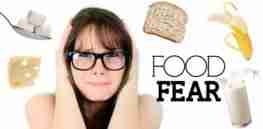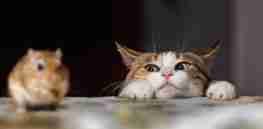Brain/Neuroscience
Alzheimer’s research is at a dead end. Here are 5 unexplored treatment routes
It is time to go back to basics. I have been a scientist involved in Alzheimer's research for three decades, ...
Infants with ‘insecure attachments’ to parents may be at higher risk of autism
Younger siblings of children with autism who have insecure attachments to their caregivers are more likely to be diagnosed with ...
Language evolved 25 million years ago, monkey brain study suggests
Curious about how people started talking, researchers from the UK scanned the monkey species and the brains of the people ...
‘The Idea of the Brain’: Book explores the struggle to understand the human brain
Neuroscientists love a good metaphor. Through the years, plumbing, telegraph wires and computers have all been enlisted to help explain ...
After injury, the adult brain attempts to repair itself with cells that revert to an embryonic state
When adult brain cells are injured, they revert to an embryonic state, according to new findings published in the April ...
Early sleep problems for autistic children may predict repetitive behaviors later
Early sleep problems predict repetitive behaviors later in childhood. And toddlers who overreact or underreact to sensory stimuli have more ...
Specialized ‘event’ cells help your brain keep all your memories organized, study suggests
Our recollection of events is usually not like a replay of digital video from a security camera—a passive observation that ...
Not just the lungs: Coronavirus also wreaks havoc on the brain
As the number of confirmed Covid-19 cases worldwide reaches 2 million, clinicians are realizing the disease doesn’t just ravage the ...
While you sleep, your brain decides which memories to keep, and which ones go to ‘the garbage bin’
We don’t remember every detail of our lives: Our brains decide which events are important for long-term storage and which ...

Our food has never been safer, so why are we so scared of it?
Why you shouldn't trust your brain ...
What’s real? Why ‘false memories’ are trouble for police, juries and judges
In 2015, memory researcher and psychologist Julia Shaw and her co-author published a study on false memories. Over the course ...
Questioning the reliability of common autism screening tool
A short, widely used screening survey for autism called the Autism Spectrum Quotient – 10 items (AQ-10) may not be ...
Is creativity driven by the right side of the brain? Not necessarily, according to this study of jazz guitarists
According to a popular view, creativity is a product of the brain's right hemisphere - innovative people are considered "right-brain ...
‘Failures aren’t for lack of trying’: The quest to find a drug for Alzheimer’s
In February, pharmaceutical companies Roche and Eli Lilly announced that two experimental drugs they had developed for Alzheimer’s disease had ...
How America is neglecting its growing elderly autistic population
[E]merging research suggests that autistic adults are at high risk of a broad array of physical and mental health conditions, ...
Turning thoughts to text with brain implants and artificial intelligence
For people with limited use of their limbs, speech recognition can be critical for their ability to operate a computer ...

Something you want to forget? CRISPR could be used to ‘delete’ traumatic memories
Good memories give us a sensation of warmth and hope for better times, but bad memories can cause serious trauma ...
Explaining déjà vu: Is this eerily familiar ‘glitch in the matrix’ a form of conflict resolution?
Some think déjà vu is a sign that you're recalling an experience from a past life. Spooky! Carrie-Anne Moss, as ...
Inoculating yourself against coronavirus conspiracy theories
To understand why there’s so much misinformation out there — for example, that the virus was purposely created in a ...
Biomarkers could be key to blood test for concussions
There is no single distinguishing feature of a concussion. Most of these symptoms can also be present in other types of injury ...
7 weird facts about how humans see the world
It might be the best-studied of all our senses, but surprises about the way our vision works just keep on ...
Aging America: In 30 years, 13.8 million people in the US may have Alzheimer’s
Alzheimer’s disease, the most common dementia among older adults, now affects about 5.8 million U.S. residents 65 and older — ...
‘Socially clueless robots’? Debunking the myth that autistic people aren’t good at friendship
A number of myths about autistic people abound. For one, it's a great myth that autistic people lack empathy. This ...
Explaining consciousness: These 2 brain networks show how we turn experiences into memories
One of the most recent studies showed a clear relationship between two brain networks critical to consciousness. In a paper ...
No root cause: What if mental health symptoms are the actual disease?
“In the prevailing understanding of mental disorders, the premise is that an underlying cause exists,” says Sverre Urnes Johnson, associate ...
‘The genie is out of the bottle’: How ‘mind reading’ will transform medical care
The ability to detect electrical activity in the brain through the scalp, and to control it, will soon transform medicine ...
‘A new thing to worry about’: Coronavirus adds stress for people with anxiety disorders
For some of the millions of Americans with post-traumatic stress disorder, obsessive-compulsive disorder or other forms of debilitating anxiety, coronavirus ...
Are babies born with brains ready to understand the world?
Neuroscientists understand much about how the human brain is organized into systems specialized for recognizing faces or scenes or for ...

